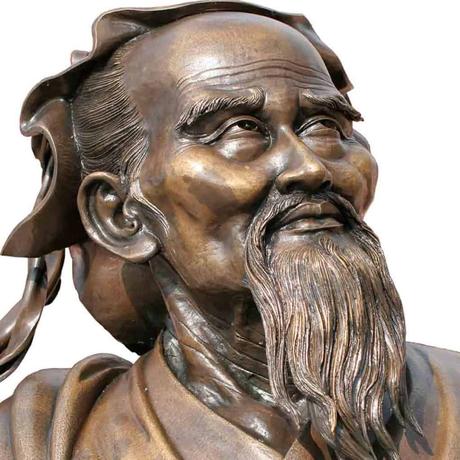
Many were those who felt identified with their ideology and their perspective of correct behavior within society, as well as the meaning of excellent government behavior. However, it also added a number of detractors.
A man who has a beautiful soul always has beautiful things to say; but a man who says beautiful things does not necessarily have a beautiful soul.
His thought can be interpreted as a response to the climate of disorder and continuous struggles between feudal lords that prevailed in the historical epoch in which he lived.
Its history developed when the power of the Zhou dynasty lived its second part, between 770-476 BC and that came to an end with the unification of China by the Qin dynasty in 221 BC.
The family of Confucius was noble but very ruined, the father of the family had died and left the family helpless. They resided in the small state of Lu, which is located in northeastern China.
About rulers, he said: they can only be great if they lead exemplary lives and are guided by moral principles. In this way, the citizens of their states would have the necessary stimulus to achieve prosperity and happiness.
Just a few months had passed when the newly appointed minister ordered an important noble, Chao Chong Mao,to be executed in Lu, in front of the gates of his castle. Confucius also demanded that his body be exposed for three days. In view of the importance of that gentleman, when asked how he dared to do that with such a noble man, Confucius replied that, in addition to being an undesirable being, he possessed something that made him more dangerous: he was so brilliant and had such a facility for words that he would be able to drag others into his errors.
During his tenure, he established a series of reforms that made the Administration of Justice an institution recognized for its impartiality, and the eradication of crime.
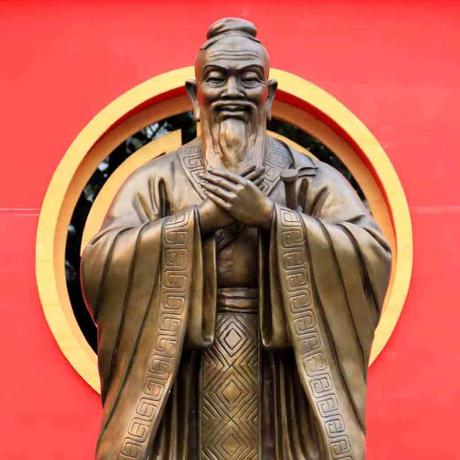
When you see a good man, think of imitating him; when you see an evil one, examine your own heart.
This is how he came to the conclusion that if he really wanted to see a change in society, it was he who should try to recover it and spread among the population the principles and precepts of the sages of antiquity.
That was how years later he decided to resign his position in the government, because he did not agree with the policy followed by the prince.
At the age of fifty he began his journey in teaching. He traveled from one place to another instructing the disciples who met with him, admired for his wisdom. His recognition as a man of knowledge, character and personality, with great veneration for traditional ideas and customs, soon spread through Lu, and then throughout China.
In addition to the basics of his thinking, he taught his students about Chinese literature, as he considered it vitally important that society be properly informed. He placed equal emphasis on the importance of Chinese music, which at that time fulfilled two specific functions: ceremonial and religious in state and worship practices.
Philosophy:
His greatest influence was Zi Zhaan, Cheng's prime minister, who introduced the first legal code in China. And one of those responsible for developing in Confucius his highly skeptical thinking, especially in everything that was related to gods issues. One of the main reasons for his disbelief was the suffering that the philosopher had felt after so many wars.
The greatest error is succumbing to dejection; all other errors can be repaired, this one cannot.
His teachings are based on good conduct in life, good government of the State, study, meditation and care of traditions. The highest virtues are: tolerance, kindness, benevolence, love of neighbor and respect for ancestors and elders. A prosperous society is only possible if these relations are kept in harmony.
It can be summarized as follows:
- To love the people, to cultivate them morally and to provide them with the means necessary for daily life.
- For the fulfillment of this motive, society must serve first and foremost with respect to the first ruler.
- Cultivate personal virtue and strive unceasingly for perfection.
- In private as in public life, always observe the upper path of the "Just Middle".
- Take into account the two kinds of inclination that are specific to man: One comes from the flesh and is dangerous; the other belongs to reason and is very subtle.
- Practice the duties of the five social relations: Governor - Minister.
Father - son.
Husband- wife.
Older brother - younger brother.
Slaves - owner. - To have universal peace and general harmony as its ultimate goal.
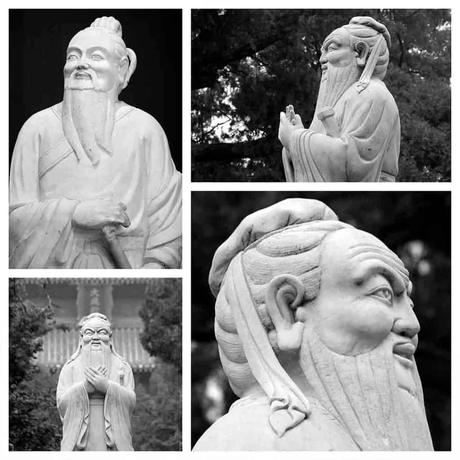
Confucius wanted to recover the thought of the old sages and transmit them to his society. He projected a systematized reality with ideas proper to Chinese culture; for this reason, he contributed to modeling society on a common basis.
People governed despotically, with order maintained by means of punishment, may avoid breaking the law, but they will lose their moral sense.
The idea of family and society also suffered, before and after Confucius. As a guide to society, he reinforced the importance of the traditional family in Chinese society.
Confucius insisted that children's respect for their parents and women's obedience to their husbands were essential activities for keeping society in order. In addition, it reinforced the people's submission to the authorities, yet it always rejected tyranny. He knew the limits.
Despite his conservationism, his thinking had innovative potential; just as he demanded a moral government: he proclaimed that nobility came not from birth but from moral superiority.
In a well-governed country, poverty must inspire shame. In a poorly governed country, wealth should inspire shame.Cosmic order:
Confucian thought believed in an intelligent force that governs the world and by which nature was ruled. It is about the Cosmic Order, this order had to be imitated in human situations, and through this way the harmony of the earth with Heaven would be achieved.
Confucius also believed in regular sacrifice and rituals. The cult of Heaven required the Emperor, the "son of Heaven", to make one animal sacrifice a year in the Temple of Heaven in Beijing. Sacrifices were also offered to the earth, to the sun and to the moon.
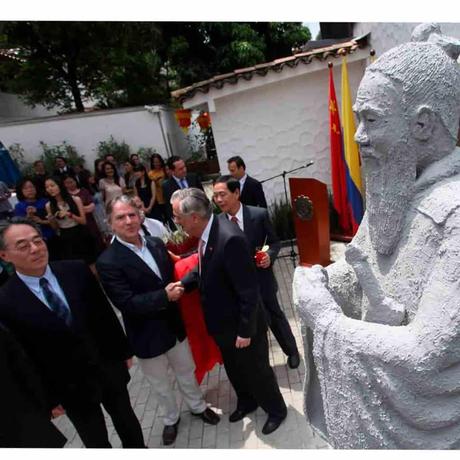
The reality of Confucius is that throughout his life he remained in search of the ideal ruler, however, around 484 B.C., after his search proved completely unsuccessful, he returned for the last time to Lu. He spent the rest of his life writing commentaries on the classic authors. He died there and was buried in Qufu (Shandong) in 479 B.C. The Confucian temple and cemetery, as well as the Kong family residence, were declared World Cultural Heritage in 1994.
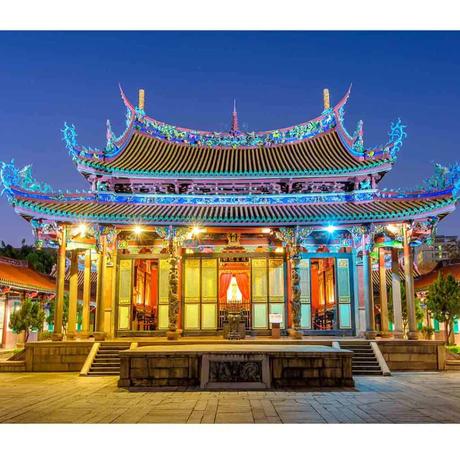
With China's openness to the world and the development of its economy, Confucianism has been well received in today's society. Since 1989, numerous ceremonies have been held throughout China to commemorate the birth of the philosopher. In 1994, on the occasion of its 2,545th anniversary, the then President of China, Jiang Zemin, thanked and venerated Confucius' very important contribution to the country's society.
Confucius became the voice of an ideal that, however strict it may seem, remains essential to that society today. Knowing their history allows us to discover a little more about Chinese society and its interests, why they are as they are, and where their customs come from. It's the magic of history. Do you identify with Confucian idealism?
Nature makes men look like each other and come together; education makes us different and distant.
Originally Post "Confucio: Búsqueda incansable de la perfección″
Translated by Oscar Moreno
